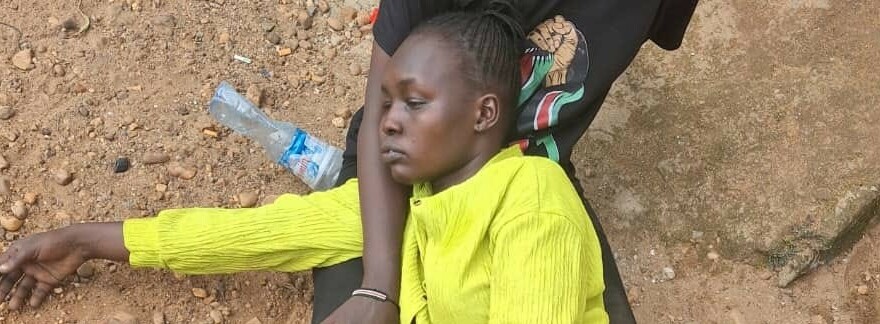The Students’ Union of the University of Juba has said at least 24 of its members have been admitted to different clinics in the capital after being beaten by the police on Wednesday morning.
On Wednesday, police assaulted the female students who were protesting against the new hostel fees.
Speaking to Radio Tamazuj on Thursday, the university union chairperson, Kamis Otho Omot, said 24 out of the 73 students arrested on Wednesday, had suffered critical injuries, including broken teeth and arms.
He said currently 24 female students were receiving medication at different clinics in Juba.
“Yesterday (Wednesday) at around 12pm, I went to the police station at Buluk where there were 73 students, among who 24 had injuries.
“Some of them had lost teeth while others had arms and legs fractures,” said Omot.
He said some three students were in critical condition and were unable to speak.
Omot called on the University Vice-Chancellor to respond to the situation and apologize for what happened.
“I tried to call the Vice-Chancellor in charge of Administration and Finance and he told me that he was very sorry, though he was not aware of what had happened,” he added.
Some of the students said that two weeks ago, they were informed by the administration about the new hostel fees, which do not meet the standards of the university accommodation.
Asunta Betty said: “Two weeks ago, we were informed by the administration that the hostel fee had been increased from 20,000 SSP to 50,000 SSP and the girls said they had something to say because it was their right to do so. When the students gathered in the hall in the morning, we were surprised that the entrance was locked and heavily-armed police had been deployed outside.”
“Few minutes later, the police started beating up girls and took them to Buluk police headquarters,” she added.
Another student, Mary Apande, said the hostel hosted more than 300 students who had been paying fee, which the administration said was for the institution’s development, which they could not see.
“We want to know where our money is going given that there is no development going on,” Apande said.




